- Business Lists ›
- Top Brands ›
- Top 10 FMCG Companies in the World 2024
Top 10 FMCG Companies in the World 2024
In this article, we have prepared the list of top FMCG (or CPG) companies in the world 2024 based on business parameters of Revenue and number of brands in product portfolio. The FMCG (Fast Moving Consumer Goods) also known as CPG (Consumer Packaged Goods) are the products which are to be used daily. The top FMCG companies manufacture products which may include food and beverage, personal care, health care, skin care, oral care and many more. The pandemic has affected these companies as the demand, distribution and supply chain got disrupted but CPG products are always required by consumers. As the world is opening post pandemic, CPG demand has come back but with bit of economic slowness around the corner, CPG can get impacted.
Top FMCG (Fast Moving Consumer Goods)/CPG (Consumer Packaged Goods) Companies Ranking 2024 by Revenue
The top FMCG (or CPG) companies in 2024 include Procter & Gamble, Johnson & Johnson, Nestle, Unilever, JBS, L’Oréal along with beverage companies like Coca Cola, Pepsi etc. The list has taken three main parameters such as revenue, profit and a number of global brands. Here is the list of the top 10 FMCG (Fast Moving Consumer Goods) companies in World in 2024.
Quick Glance:
Rank 1. Nestle
Nestle is a food and beverages company having head office in Vevey, Vaud, Switzerland holding true essence of Switzerland.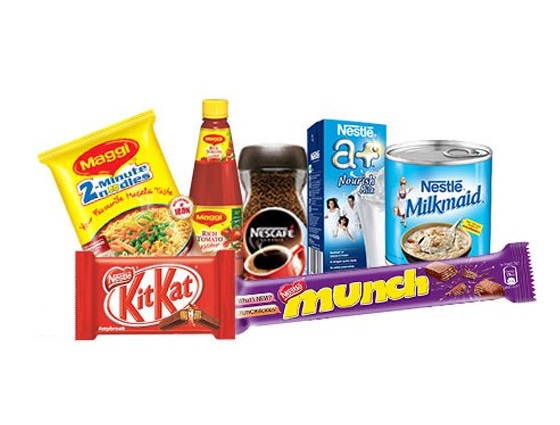
Image: company website
Nestle has grown on to become one of the largest food and beverage companies in the world, with operations in more than 180 countries. Nestle's large porfolio includes food and beverage categories, including coffee, bottled water, infant formula, pet food, and confectionery.
The top brands under Nestle include Nescafe, KitKat, Gerber, and Purina, among many others.
Nestle has a drive towards business sustainability, and the company has implemented numerous initiatives to reduce its environmental impact. Nestle company is also involved in various philanthropic initiatives. The company's Creating Shared Value (CSV) program focuses on addressing social and environmental issues in the communities where it operates. On the whole, Nestle is a major player in the food and beverage industry, with a diverse portfolio of well-known brands and a strong commitment to sustainability and social responsibility. This makes Nestle one of the best FMCG companies in the world.
Revenue: $102 Billion
Rank 2. Pepsi
PepsiCo is the proud owner of the highly reputed brands like Lays, Pepsi, Tropicana, Quaker, etc.
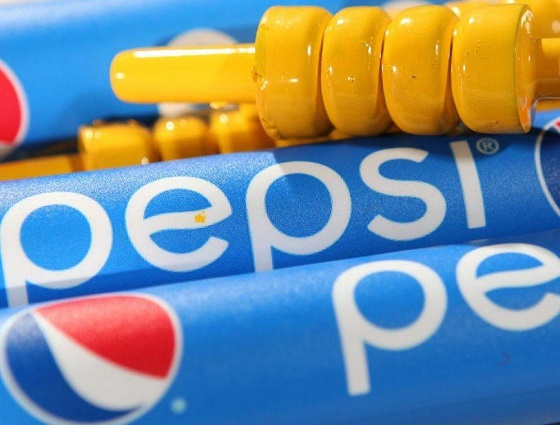
Image: pixabay
The corporate rivalry of PepsiCo with Coca Cola has been amusing for people and its true that loyalist of Pepsi won’t buy Coke and the vice versa.
PepsiCo has a range of popular global brands namely Pepsi, Frito-Lay, Gatorade, Tropicana, Quaker Oats, etc. PepsiCo's flagship product is Pepsi, which is one of the world's most popular soft drinks. The company's other drink brands like Gatorade, Tropicana, and Aquafina are very popular as well. In addition to soft drinks, PepsiCo also produces snack foods through its Frito-Lay division, which has products like Lay's, Doritos, Cheetos, and Tostitos.
The company has also made a commitment to sustainability, and the company has implemented numerous initiatives to reduce its environmental impact. These efforts undertaken globally include water conservation efforts, renewable energy projects, and sustainable packaging solutions. The company is also known to be involved in various philanthropic initiatives. The company's charitable foundation, the PepsiCo Foundation, focuses on providing access to safe water, nutrition, and education in underserved communities.
Revenue: $ 91 billion
Rank 3. Johnson & Johnson
Johnson & Johnson’s products are divided into main three categories: Consumer Healthcare, Medical Devices, and Pharmaceuticals.
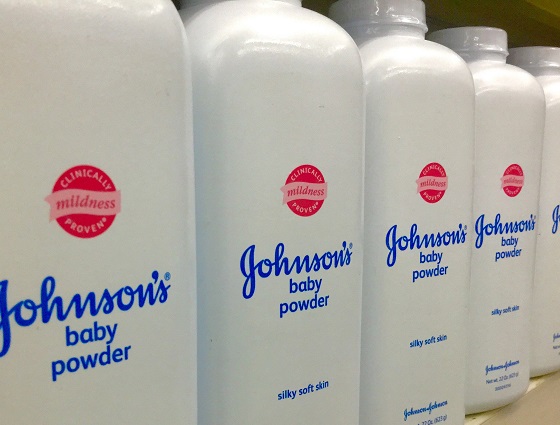
Image: flickr.com/photos/jeepersmedia/
The company is headquartered in New Brunswick, New Jersey, United States and it has almost 250 subsidiaries in almost 60 countries worldwide.
J&J has a diversified businesses across different sectors like pharmaceuticals, medical devices, and consumer health products. J&J's pharmaceutical segment is responsible for developing and manufacturing prescription drugs to treat a range of diseases and conditions. The medical devices made by the company include surgical instruments, orthopedic products, and cardiovascular devices. Some of the company's well-known medical devices include blood glucose meter and hip replacement system. J&J's consumer health segment produces over-the-counter products, such as Band-Aids, Tylenol, and Listerine. These products are designed to treat common ailments and promote overall wellness.
The company has a reputation for being a socially responsible company, and it has been recognized for its commitment to sustainability and corporate social responsibility. All of this makes it a top FMCG company in 2024.
Revenue: $ 85 billion
Rank 4. Procter & Gamble
Procter & Gamble was founded in 1837 by British American William Procter and Irish American James Gamble making it one of the oldest Fortune 500 company.
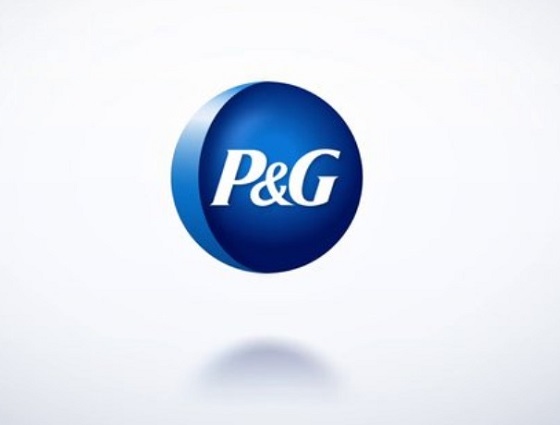
Image: company website
The company's products are globally across 180 countries. P&G's product range crosses sectors like beauty, grooming, health care, fabric care, home care, and baby care. It most promient global brands include Tide laundry detergent, Crest toothpaste, and Pampers diapers etc. P&G has a reputation for being a highly innovative company, and it invests substantially in R&D. The company has a robust pipeline of new products, and it is constantly looking for ways to improve its product line.
The company has made a concerted effort to improve its environmental sustainability. The company has implemented numerous initiatives to reduce its carbon footprint and conserve natural resources, such as water and energy. Also, the company is involved in various philanthropic initiatives like P&G Children's Safe Drinking Water Program provides clean drinking water to people in developing countries. On the whole, Procter & Gamble is a major player in the consumer goods industry, with a diverse portfolio of well-known brands and a strong commitment to innovation, sustainability, and social responsibility.
Revenue: $ 82 billion
Rank 5. JBS
The world’s second-largest food company, JBS, with an extensive product portfolio, producing chiefly frozen meat & poultry.
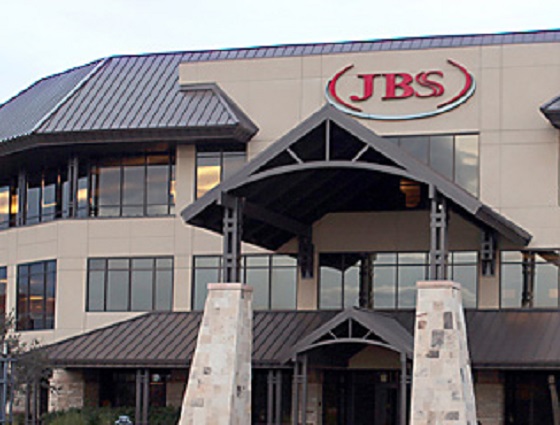
Image: company website
This leading FMCG companies also has food processed and maintained with international standards, backed by well-known brands sold in more than 150 countries. JBS boasts 10 iconic billion-dollar brands and is one of the largest meat processing company in the world. The company was formed in Brazil in 1953. 1980 was the time when the company started to observe significant growth. The company has more than 300 production facilities in different countries. The company has over 20 sales offices worldwide. The company has created a niche market in ready to eat, fresh and frozen products.
In many cities, the company’s production facility represents the largest private sector employer. By generating direct and indirect jobs, the company plays an important role in local communities and helps develop local economies. JBS also is the main sponsor of the Germinare Institute in Brazil, a business school for children and adolescents between 12 to 18 years of age in Sao Paulo, Brazil. The company was successful to create the first sustainable hamburger in association with McDonald’s. The company has also received many awards for its “Roast in Bag” product. “Today is Chicken Day” is the largest Brazilian platform focused on chicken with more than 6 million interactions. The company has over 2,15,00 employees all around the world. JBS USA has occupied the second place for the production of meat in the United States.
Revenue: $72 billion
Rank 6. Unilever
Unilever is an Anglo-Dutch company having headquarters in London, United Kingdom and Rotterdam, Netherlands.
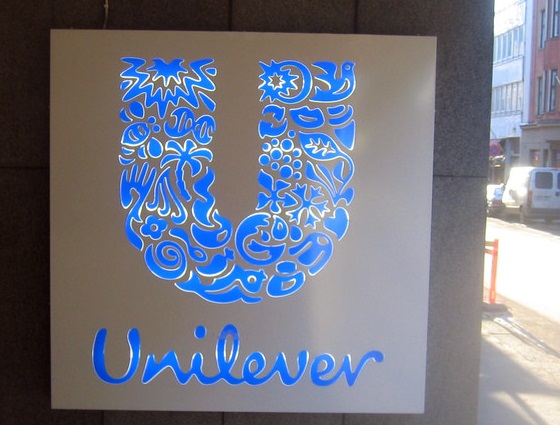
Image: flickr.com/photos/withoutsound/
Unilever owns more than 300 brands worldwide spread across various product segments, which makes it one of the top FMCG companies in the world in 2024. The company was founded in 1930 as a result of the merger of Margarine Uni and Lever Brothers. Soap and margarine producers collaborated and created a multinational company catering to the thousands of daily needs. The product portfolio of the company includes food and beverages, cleaning agents, personal care, home care, refreshments, etc.
One of the oldest multinational companies is present in around 190 countries. The company owns 15 billion-dollar brands. All the iconic brands of Unilever make up to 58% of the total turnover. 18 of the company’s top brands qualified as sustainable living brands which grow faster than 50% and delivering more than 605 of the overall growth of the company. Some o the top brands are AXE, Dove, Knorr, Lipton, Sunsilk, and Surf. Unilever has made many strategic acquisitions like Breyers from Kraft which is largest ice-cream manufacturer in the US. Unilever involves itself in many CSR activities, the Lifebuoy Roti campaign was a significant marketing achievement. Spreading the awareness about health, giving employment to women in rural areas, etc. have been efforts put in by the company. The strength of Unilever is its valuable supply chain network. In countries like India, it is very hard to penetrate into the farthest corner of the country. Unilever made it possible through its experience in distributors network. The company’s product portfolio includes premium products as well as budget products.
Revenue: $ 60 billion
Rank 7. AB InBev
Anheuser-Busch InBev is a Belgian-Brazilian company selling transitional beverages across the world.
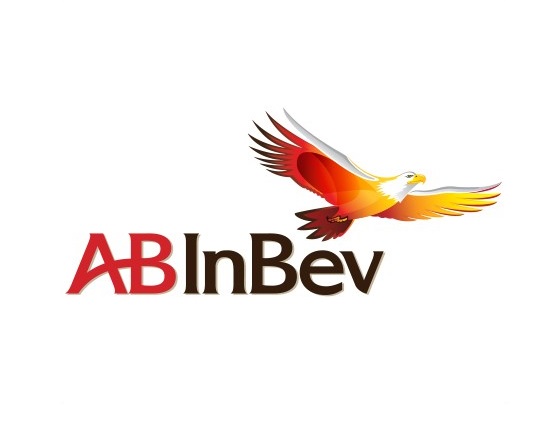
Image: company website
The company is headquartered in Leuven, Belgium and it is also considered the world’s largest beverage company after its acquisition of SABMiller in October 2016. The company was originally formed with the big companies came together to form today’s AB InBev, which were: Interbrew (from Belgium), Ambev (from Brazil) and Anheuser-Busch (from the US) in 2008. Ab InBev has won over 190+ awards globally in 2017. The company has an international presence with more than 500 brands serving the customers. As one of the top FMCG companies, it has leading billion-dollar brands which have a steady growth. The brands fetched combined 16.8% revenue growth. The company easily boasts the strongest organic revenue growth in 2017 of all global FMCG companies. The company has operations in almost all beer markets with the brands getting sold in 100 countries worldwide.
In 2017, the company has observed 5.1% overall revenue growth and 13.4% EBITDA growth. The company was declared as the world’s most admired company by Fortune magazine. The organization has received 100% score on the 2017 corporate quality index and the best place to work. The company tries to match the pace with the world of clean energy as a result of which Budweiser has planned to switch to renewable energy for US brewing. The company has committed to shift to renewable energy completely by 2025. The company has an Analytics lab in Illinois known as Bud Analytics lab which has specific purpose to develop data research and innovation which can solve problems, i.e., assortment optimization, social media, market trends, etc.
Revenue: $59 billion
Rank 8. Tyson Foods
Tyson food co is an American multinational company that operates in food industry, and one of the largest FMCG companies.
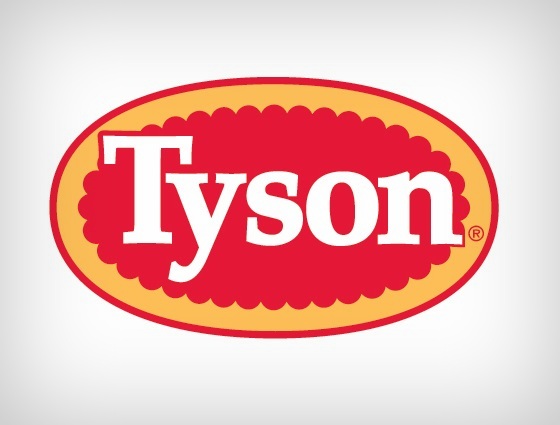
Image: company website
It is headquartered in Spring Dales, Arkansas and is the world’s largest processor and marketer of chicken and meat products and exports largest percentage of meat outside united states. John W Tyson set up this organization in 1935, and according to the data from 2014 it has given employment to 115,000 individuals, who are deployed at more than 300 offices. Tyson additionally works with 6,729 free contract chicken producers. It is one of the biggest U.S. marketer of value added chicken, hamburger etc to retail stores, wide line food service wholesalers and national fast food and full administration eatery networks; crisp hamburger; solidified and completely cooked chicken, meat etc items; case-prepared meat; grocery store shop chicken items; meat fixings for the pizza business and retail solidified pizza; club store chicken, hamburger etc; ground meat and flour tortillas. It supplies all Yum! Brands chains that utilizes chicken, including KFC and Taco Ringer, and also McDonald's, Burger Ruler, Wendy's, Wal-Shop, Kroger, IGA, Meat O'Brady's, small restaurents, and penitentiaries.
Revenue: $53 billion
Rank 9. Coca Cola
The flagship product of the Coca-Cola company is the coke which was originally intended as a patent medicine which helps to reduce the stress.
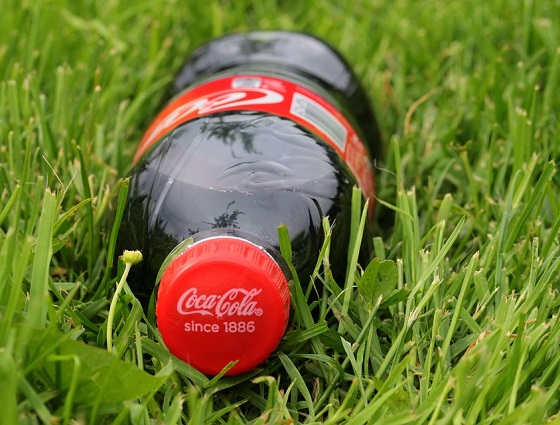
Image: pixabay
The company produces concentrates which result in iconic products such as diet coke, coke zero, Coca-Cola Vanilla, etc. The Coca-Cola Company is the world’s largest beverage company and one of the top FMCG companies in the world in 2024owing to its product range and distribution. The company owns the market of more than 500 nonalcoholic beverage brands, which they group into the following category clusters: sparkling soft drinks; water, enhanced water and sports drinks; juice and dairy beverages; tea; coffee; and energy drinks. The company markets four of the world’s top five non-alcoholic soft-drink brands that are Diet Coke, Coca-Cola, Fanta, and Sprite. The company sells its finished beverage products in more than 200 countries.
All FMCG products are furnished to consumers in all over the world, through the network of Company-owned and distribution operations, as well as independent bottling partners, distributors, and retailers — the world’s largest beverage distribution system. The company is also known for its innovative way of distribution and promotion; this is one of the reasons why the products are much popular within youngsters. 60 billion servings of all beverages consumed worldwide every day. The company’s main operating segments are Europe, Middle East, Africa, Latin America, North America, Asia Pacific, etc. The company takes it commitment to sustainability very seriously. 89% of bottling partners and 90% of direct suppliers achieved compliance with supplier guiding principles. 1.7 million women enabled through 5by20 initiative and gained economic empowerment. The company has strategically acquired the brands like Minute-Maid, FUZE, Monster, Vitamin Water, etc.
Revenue: $46 billion
Rank 10. L’Oréal
L’Oréal was awarded as world’s most ethical company by Ethisphere Institute and is a leading cosmetic FMCG company.
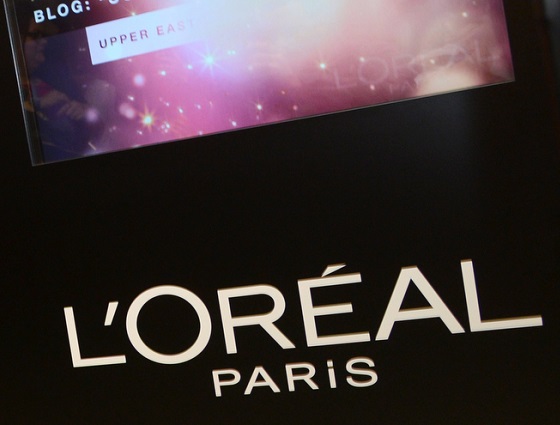
Image: Wikimedia
Code of business ethics and gender equality are the main highlights of L’Oréal, which is why it is among the top FMCG companies in the world. The portfolio includes cosmetics, makeup and beauty products with more than 34 global brands. L’Oréal was founded by Louis Schueller in 1919, a French chemist. The company has itself employs 20,000 chemists till the date. The number shows L’Oréal’s interest in Research and Development. Continuous patent registration is where L’Oréal stands out, it has registered total 498 patents in the year 2017. L’Oréal also stands as the first cosmetics group in the world with the international presence in 150 countries. Every year, the L’Oréal, in association with UNESCO organizes a program called “For Women in Science” where it celebrates and awards five eminent researchers from five continents. Around 100 laureates have been awarded since 1998, three of them have also received a Nobel prize.
L’Oréal has diversified itself by putting a foot in skincare, haircare, makeup, fragrances and hygiene products market where it beats the other giant players in the market. L’Oréal has observed 25% growth in online cosmetic sales worldwide having additional 10% share in the beauty market. The sales of L’Oréal have been roaring so as to fulfill its mission to furnish all with beauty. L’Oréal is reinventing conventional hair salons by adding an element of creativity, thus making it creative hubs. 1,500 salon managers from more than 60 countries came together at the L’Oréal Professional Business Forum in October 2017. It trains 450,000 hairdressers each year with around 250 training studios worldwide. L’Oréal is 10th on the top 10 fmcg companies in world 2024 list.
Revenue: $44 billion
Ranking Methodology for Top FMCG Companies 2024
1. The leading & top 15 FMCG (Fast Moving Consumer Goods) companies in the world are considered.
2. Parameters like revenues and number of brands are taken for rankings
3. The final ranking is done based on revenue.
This article has been researched & authored by the Content & Research Team which comprises of MBA students, management professionals, and industry experts. It has been reviewed & published by the MBA Skool Team. The content on MBA Skool has been created for educational & academic purpose only.
Browse similar company lists across 50 sectors. The top brand lists category covers rankings of companies based on various parameters.
Continue Reading:
What is MBA Skool?About Us
MBA Skool is a Knowledge Resource for Management Students, Aspirants & Professionals.
Business Courses
Quizzes & Skills
Quizzes test your expertise in business and Skill tests evaluate your management traits
Related Lists
All Business Sections
Write for Us